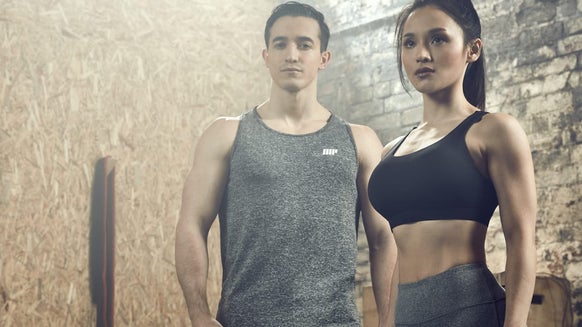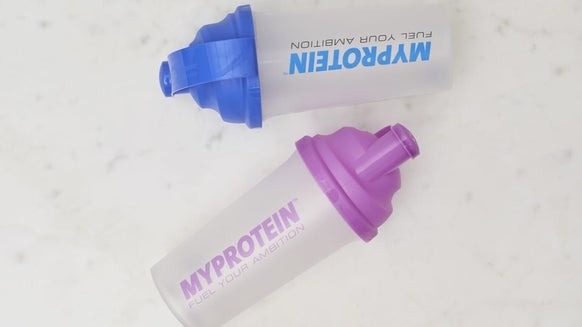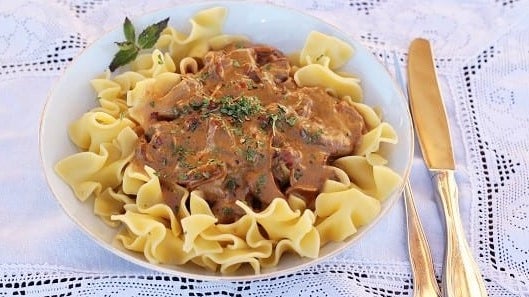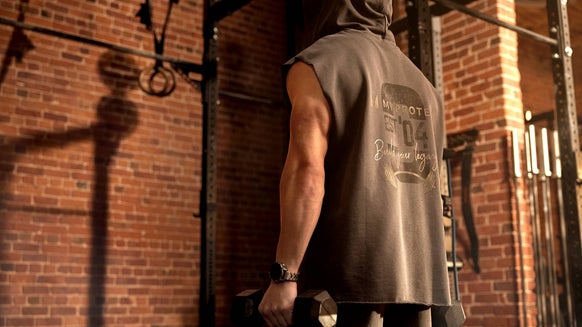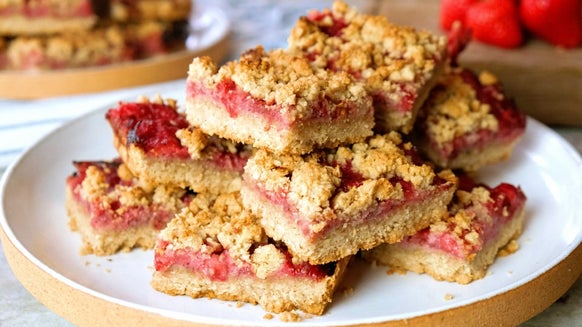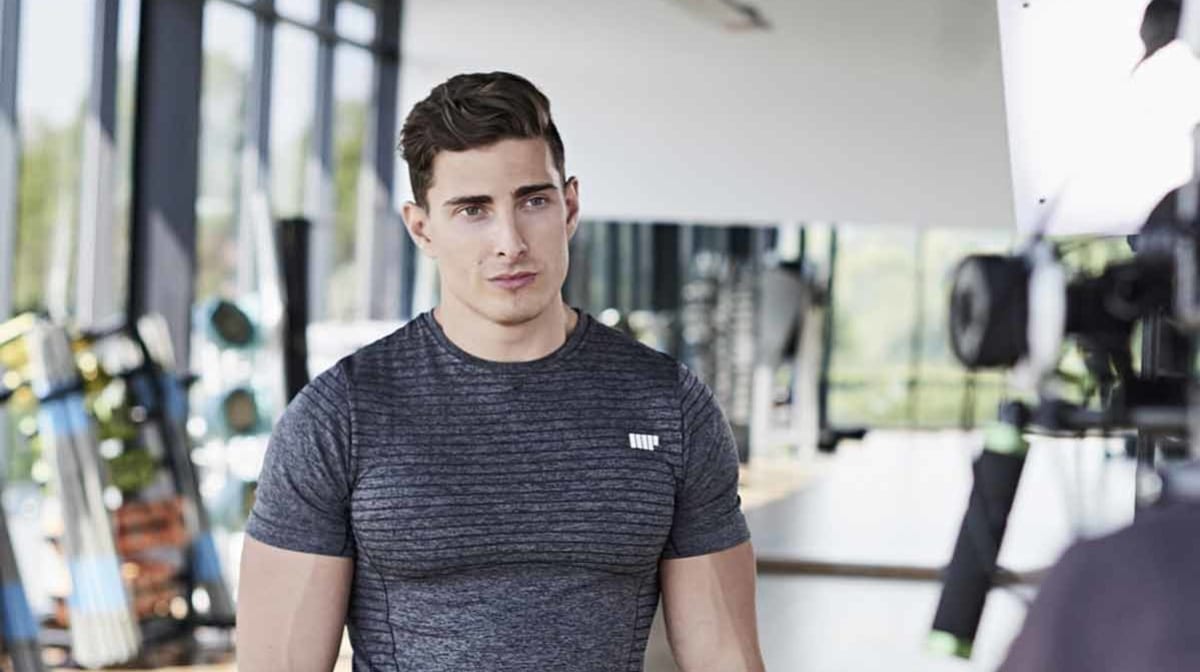
Proteinbedarf von Sportlern nun durch Studien erforscht
Proteinbedarf bei kraft- & geschwindigkeitsorientierten Athleten
Proteinbedarf bei ausdauerorientierten Athleten
Abschließende Worte
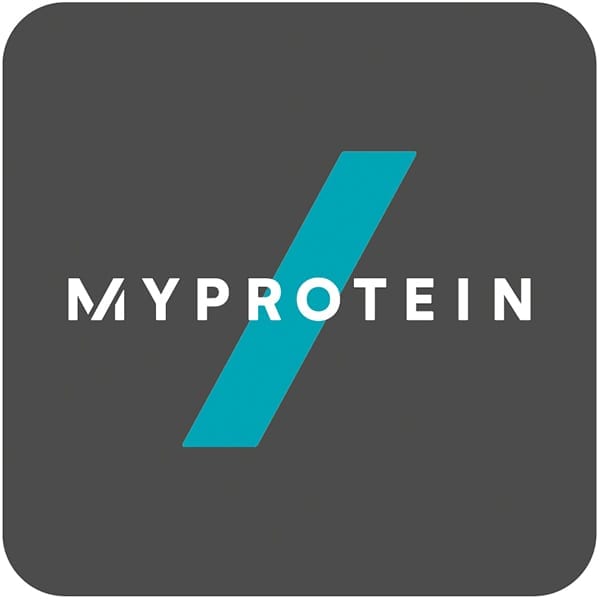
Quellen
Short, S.H. and Short, W.R (1983) ‘Four-year study of university athletes‘ dietary intake’ 1983 Jun;82(6):632-45.
M. A. Tarnopolsky, J. D. MacDougall, and S. A. Atkinson (1999) ‘Influence of protein intake and training status on nitrogen balance and lean body mass’ Journal of Applied Physiology
Economos, D.D. Bortz, S.S. Nelson, M.E (1993) ‘Nutritional practices of elite athletes. Practical recommendations.’ Journal of Sports Medicine 1993 Dec;16(6):381-99.
Paul GL. Dietary protein requirements of physically active individuals. Sports Med 1989; 8:154-176.
Boirie, Y., et al., „Slow and Fast Dietary Proteins Differently Modulate Post-Prandial Protein Accretion,“ Proc Natl Acad Sci 94 (1997) : 14930-5.
Dangin, M., et al., „The Digestion Rate of Protein Is an Independent Regulating Factor of Post-Prandial Protein Retention,“ Am J Physiol (Endocrinology & Metabolism) 280.2 (2001) : E340 -8.
Gambelunghe, C., et al., „Physical Exercise Intensity Can Be Related to Plasma Glutathione Levels,“ J Physiol Biochem 57.2 (1997) : 9-14.
Kerksick, C., et al., „Effects of Whey Protein Supplementation with Casein or BCAA & Glutamine on Training Adaptations II: Performance,“ Med Sci Sport Exer 35.5 (2003) : abstract 2204.
Kreider, R., et al., „Effects of Whey Protein Supplementation with Casein or BCAA & Glutamine on Training Adaptations I: Body Composition,“ Med Sci Sport Exer 35.5 (2003) : abstract 2205.
Leeuwenburgh, C., and Li, L.L., „Glutathione Depletion in Rested and Exercised Mice: Biochemical Consequences and Adaptation,“ Arch Biochem Biophys 316.22 (1995) : 941-9.
Leeuwenburgh, C., and Li, L.L., „Glutathione and Glutathione Ester Supplementation of Mice Alter Glutathione Homeostasis During Exercise,“ J Nutr 128.12 (1998) : 2420-6.
Lemon, P.W.R., et al., „Protein Requirements and Muscle Mass/Strength Changes During Intensive Training in Novice Bodybuilders,“ J Appl Physiol 73 (1992) : 767-7.
Lemon, P.W.R., „Effects of Exercise on Protein Metabolism. In Nutrition in Sport (Maughan, R.J. [ed.], Blackwell Science Ltd., 1257-65) 2000.
Sen, CK., et al., „Exercise-Induced Oxidative Stress: Glutathione Supplementation and Deficiency,“ J Appl Physiol 77.5 (1994) : 2177-87.
Svensson, M.B., „Endogenous Antioxidants in Human Skeletal Muscle and Adaptation of Energy Metabolism: With Reference to Exercise—Training, Exercise Factors and Nutrition,“ Ph.D. Thesis, Karolinska Institute, Sweden, 2003.
Tarnopolsky, M.A., et al., „Evaluation of Protein Requirements for Strength Trained Athletes,“ J Appl Physiol 73 (1992) : 1986-95.
Ziemlanski, S., et al., „Balanced Intraintestinal Nutrition: Digestion, Absorption and Biological Value of Selected Preparations of Milk Proteins,“ Acta Physiol Pol 29.6 (1978) : 543-56.
Yves Boirie, Martial Dangin, Pierre Gachon, Marie-Paule Vasson, Jean-Louis Maubois, and Bernard Beaufrère (1997) ‘Slow and fast dietary proteins differently modulate postprandial protein accretion’

